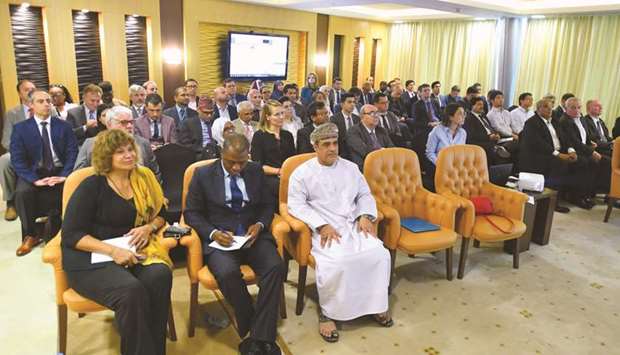Energy expert and former Austrian Foreign Affairs Minister Dr Karin Kneissl tackled the ‘The Future of the Automotive Industry and Its Impact on Oil and Gas Producing Countries’ in her lecture, held recently (October 17) in Doha.
The discussion forms part of the 39th edition of the Gas Exporting Countries Forum’s (GECF) monthly talks, which was attended by its secretary-general, Yury Sentyurin (who delivered the opening remarks), representatives from GECF member countries, and diplomats from different embassies in the country.
Dr Kneissl lamented that the automotive sector is the last key industry remaining in Europe and is critical in terms of employment, citing that countries like Germany, which is a car-cluster, are very much dependent on export.
She highlighted that what once was a thriving industry, is now under great threat, due to a number of factors.
The former minister recounted an anecdote of visiting the car museum in Torino, noting it paints a compelling picture of what an industry was able to accomplish — a testament to the genius that was clearly present in the early 20th century and the industry’s subsequent decline.
“It is all interconnected: the future of the automotive sector whichever engine we will choose, whatever we need for demand, will have its geopolitical implications,” Dr Kneissl stressed. “What will happen to the European industrial landscape if the automotive sector sees a tremendous change or shift — and these shifts are manifold?”
However, she said, the industry is under huge pressure from more than one angle: not only it is under scrutiny due to decarbonisation regulations from the European Union, but there also exists a more ‘home-made pressure’, such as the rigid restrictions on diesel cars.
Dr Kneissl said these idiosyncratic factors were already touched upon by the World Economic Forum in Davos in January 2019.
Outside of Europe, she said the competition from Asia is looming, which suggests that a car of the future might be designed in China but assembled in Africa in order to offer low prices.
The former minister noted that any changes in the combustion engine industry will have a strong impact on oil and gas producers, which then leads to deeper geopolitical implications.
“First it is a technical one, the big question mark is whether the combustion engine will remain, and will it compete with other forms of technologies, such as the electric car?”
“It is very difficult to foretell which technology will prevail, we know about the strong belief many have in the electricity model but here we should always bear in mind that we always review commodities,” she stressed.
The former minister cited the evolution of bigger but slower cars to smaller and more fuel-efficient ones in the 1980s, as well as their tremendous decline in price.
“What happened in 80s gave people a better understanding of today’s developments in mobility,” she said.
“The linkage between mobility and geopolitics is very well reflected in what happened in World War 1,” said Dr Kneissl. “World War 1 was the first war which was fought in the name of mobility, people started to go into that war on horseback.”
She noted that next to the 16mn people killed, about 20-30mn horses died in that war, which started on horseback and ended with a submarine war between the US and Germany in the autumn 1917. This was also the first time soldiers were transported by cars — just to show the enormous strides that were made in mobility in a short space of time.
However, Dr Kneissl noted that the world is witnessing a complete reinvention of mobility today with the advent of disruptive technology. An example of this is drones.
In the logistics industry, goods are already being transported by drones, she said. This begs the question which wider impact this could have on mobility in general.
According to Dr Kneissl, uncertainty prevails when it comes to trends for future mobility.
About the emergence of lithium batteries to power cars and other equipment and gadgets, she noted that so far only four or five countries in the world have rich lithium reserves, which might create challenges going forward.
Concerning hydrogen-powered cars, she said that as much as the technology is interesting, proper investment is still lagging. For example, when it comes to the proper infrastructure she said that there are currently only two hydrogen power stations in Austria. As the title of the presentation reflects, the question also rises as to how these evolutions will reflect on the 19 members of the GECF.
GECF countries together account for over 70% of the world’s proven natural gas reserves, 45% of global gas production, 54% of LNG exports and 64% of pipeline gas.
Member countries of the Forum are Algeria, Bolivia, Egypt, Equatorial Guinea, Iran, Libya, Nigeria, Qatar, Russia, Trinidad and Tobago, the United Arab Emirates and Venezuela. Angola, Azerbaijan, Iraq, Kazakhstan, Norway, Oman and Peru have the status of Observer Members.
Business / Business
Future of automotive industry and its impact on oil and gas producing countries discussed

Representatives from GECF member countries and diplomats from different embassies in Doha attend the talk.
